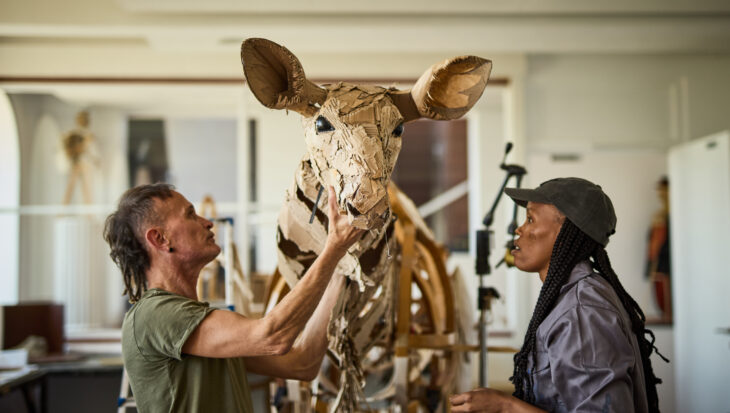‘The Herds’ will be arriving in London this Friday!
Have you heard? A breathtaking arts initiative, ‘The Herds’ will be arriving in London this Friday.
Posted 27 Jun 2025

Posted on the 19th September 2014
Campaign by Bird Lover and Animal Aid Successful
When bird lover David Kennedy discovered that Canada geese were being shot at Lingley Mere – a lake owned by Warrington-based United Utilities – he felt he had to speak out. David, who lives about 10 miles from Lingley Mere, knew that a proposed cull of geese at Lake Windermere had been halted when the local authority was persuaded to put into place non-lethal control plans, and he contacted United Utilities to urge them to do the same.
First, he wrote to the company asking them to investigate humane solutions. Then he launched a petition on www.thepetitionsite.com, which was signed by more than 55,000 people. Finally, he contacted Animal Aid – the national organisation that spearheaded the campaign to save the Windermere geese. Animal Aid liaised with United Utilities, and suggested humane, non-lethal tactics and products, and offered contact details for a number of other geese deterrence specialists.
United Utilities listened, and took swift and positive action, announcing a raft of non-lethal measures to deter geese from the area. The company will begin by fencing off the lake to create a physical barrier and erecting signs to warn employees not to feed the geese. Without access to the water and feed put down by well-meaning employees, many of the geese are likely to leave voluntarily. But United Utilities has other measures up its sleeve. In an email to David Kennedy, its Head of Sustainability, Chris Matthews, wrote: ‘We are also considering a trial of a specific chemical on a small area of grass which makes the grass taste bad to the geese and will send them in search of other food sources. This is neither harmful to geese or humans.’
Should these measures not work, Mr Matthews continued: ‘[W]e have a second wave of measures lined up – these include electronic bird calling, installation of boons on the water, dog-walking, decoys and kites. We [will] review the effectiveness of the first measures and will decide then whether to begin implementing a second wave.’
Says local campaigner, David Kennedy:
‘Progress is often made when two sides are open minded enough to listen to each other’s arguments – and that’s exactly what United Utilities has done on this issue. Culling is only ever a short-term, temporary fix, never a permanent answer to a problem. With a little time and effort, long-term solutions can be found. This has been the approach at Windermere and now Lingley Mere, and this shows that the rule holds true: where there’s a will there’s a way.
With the help of Animal Aid it’s now looking good for United Utilities’ public image, and most importantly of all – it’s good news for the Canada geese.’
Animal Aid’s Head of Campaigns, Kate Fowler, is thrilled with the outcome:‘I’d like to publicly commend United Utilities for its progressive and compassionate approach to this issue. Where others have sometimes turned a deaf ear, this company has sought out information, listened to experts and acted quickly to devise and implement a humane policy with regards to the geese at Lingley Mere. We will remain on hand to help where required but in the meantime we extend our grateful thanks to Mr Matthews and his team.’
Have you heard? A breathtaking arts initiative, ‘The Herds’ will be arriving in London this Friday.
Posted 27 Jun 2025

As the greyhound racing industry releases its annual data on the number of dogs’ deaths, a raft of well-known names - alongside their canine friends - has called upon the Government to end greyhound racing....
Posted 26 Jun 2025
